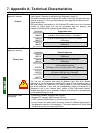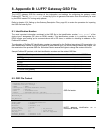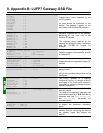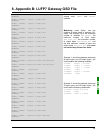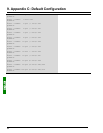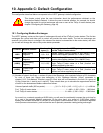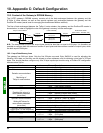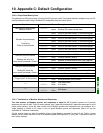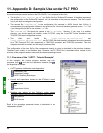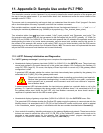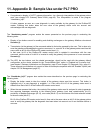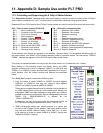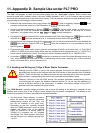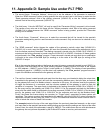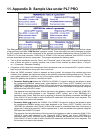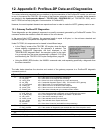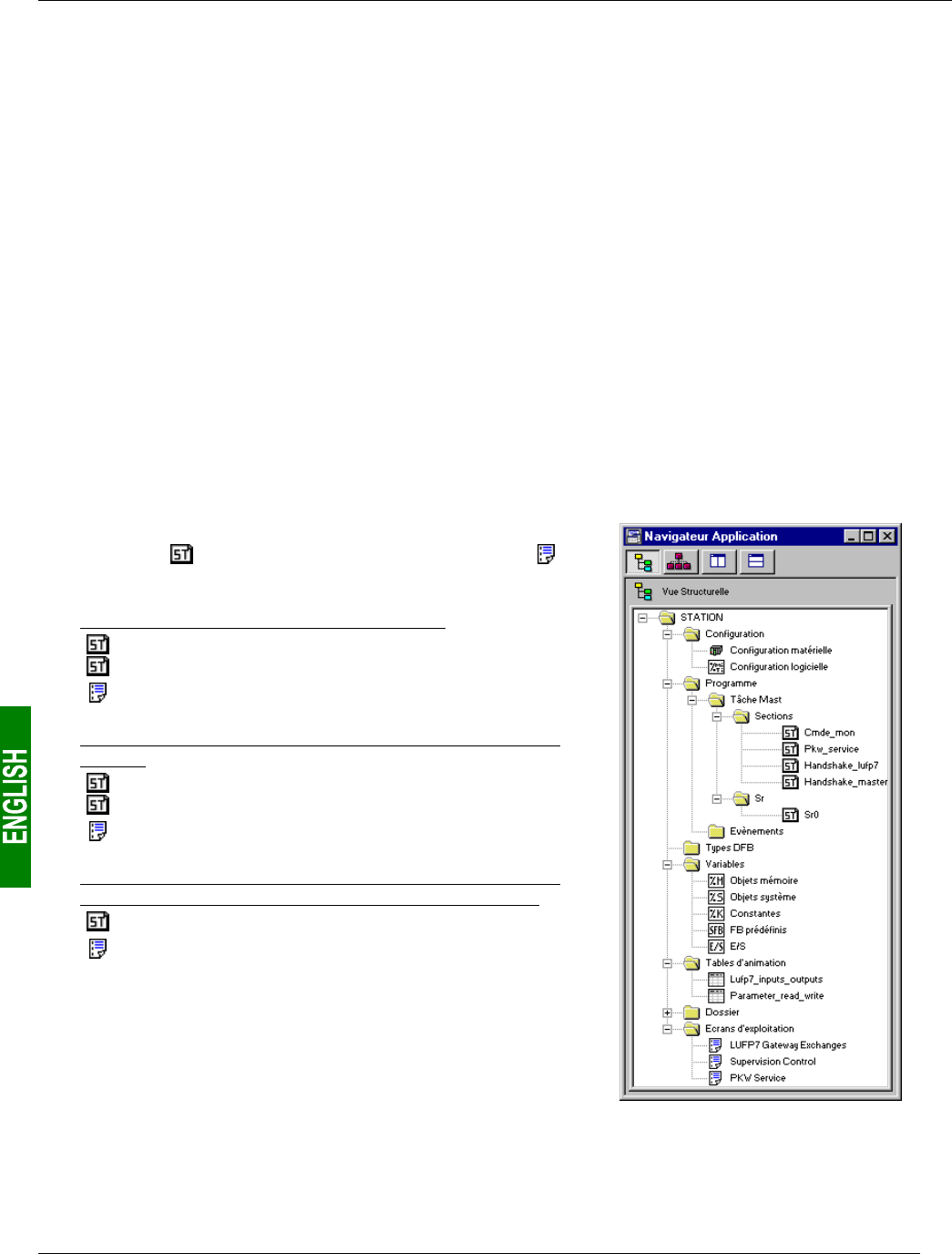
98
11. Appendix D: Sample Use under PL7 PRO
A practical example can be found on the CD LU9CD1. It is composed of four files.
• The first file, “LUFP7_Tutorial_EN.pb”, is a SyCon file for a Profibus-DP network. It therefore represents
the configuration of the Profibus-DP network, as it is described in the previous chapters. This file is useful
only if you wish to change the configuration.
• The second file, “LUFP7EN.cnf”, is the configuration file exported in ASCII format from SyCon. It
corresponds to the configuration defined in the previous file. You must therefore generate a new “
.cnf” file
if you change the first file or use another “
.pb” file.
The “
LUFP7EN.cnf” file should be copied to the “C:\PL7USER\” directory. If you copy it to another
directory, you should specify its location, under PL7 PRO, using the “Load CNF” button available in the
TSX PBY 100 board configuration screen.
• The third and fourth file, “lufp7_tutorial_EN_tsx57353.stx” and
“
lufp7_tutorial_EN_tsx57202.stx”, are PL7 PRO files and therefore represents the actual example
for a TSX Preimum PLC with respectively a TSX57353 processor and TSX57202 processor. The next
chapters deal with its content and the way to use those files.
The configuration of the two SyCon files corresponds exactly to what is described in the previous chapters.
Therefore, their content is not detailed here. However, the PL7 PRO file is described below, based on the
structure of the program sections used and the related operating screens.
11.1. Overview of the “LUFP7 - Tutorial Example”
In this example, the various program sections and sub-
programs (icon
), and also the operations screens (icon )
are organized as follows:
• LUFP7 gateway initialization and diagnostics:
Handshake_lufp7
Handshake_master
LUFP7 Gateway Exchanges
• Control and supervision screen for the 8 TeSys U motor
starters:
Cmde_mon
Sr0
Supervision Control
• Reading and writing of any TeSys U motor starter
parameter (service similar to the “parameter area PKW”):
Pkw_service
PKW Service
Each of the groupings presented above is described in an
independent chapter.



